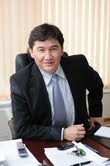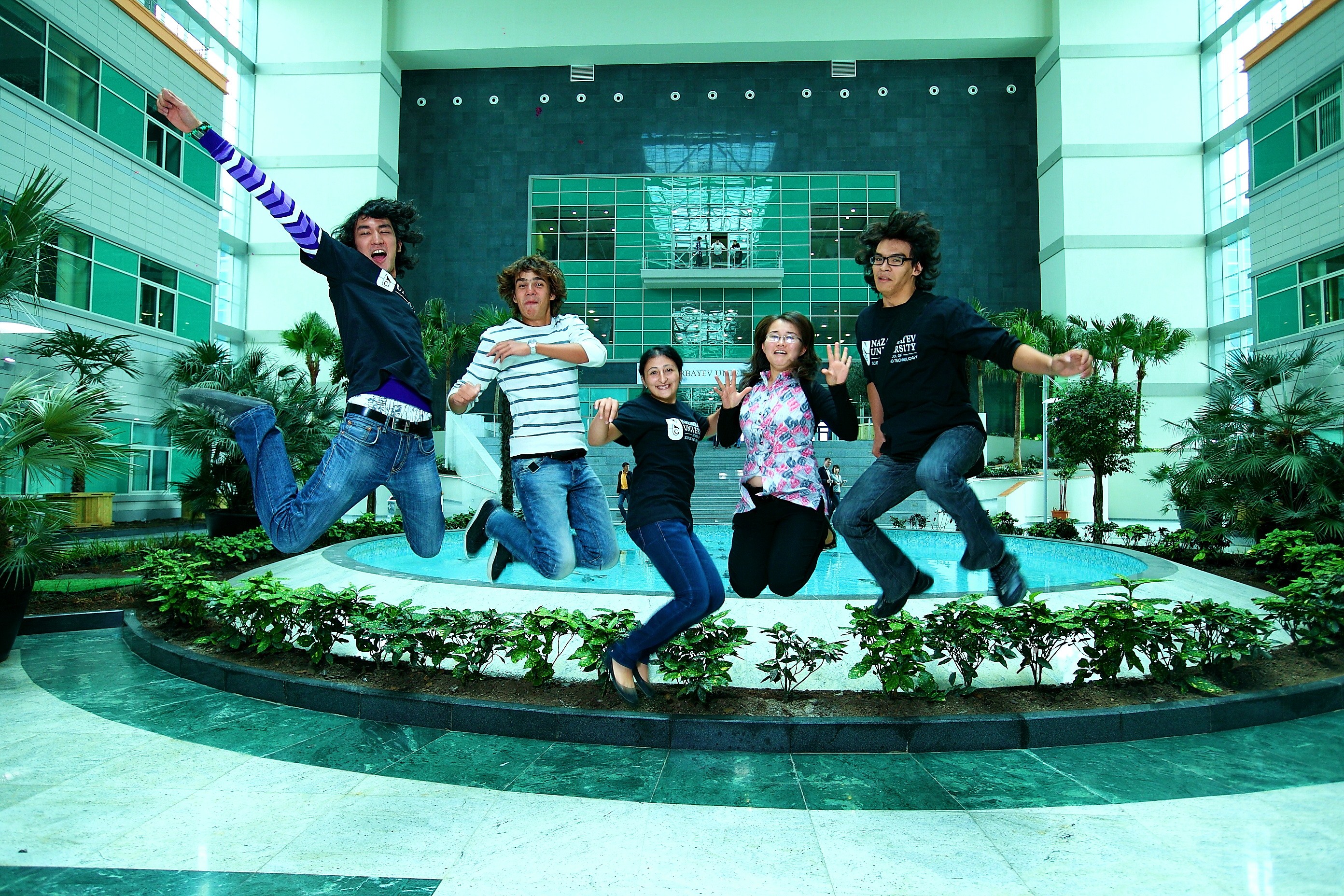Duke, University of Pennsylvania, Carnegie Mellon partner with Nazarbayev University
(Hal Foster appears in the Baltimore Post-Examiner under a partnership with Tengrinews of Kazakhstan. )
Kazakhstan’s Nazarbayev University, whose partners include Duke, the University of Pennsylvania and Carnegie Mellon, has ambitious plans for its third year, including starting a graduate program and doubling the size of its campus.
That’s the word from Aslan Sarinzhipov, chairman of the university’s Executive Council, which has spearheaded the start-up effort in the country’s capital of Astana since Day One in June 2010.
Aslan said the institution, which has forged partnerships with American universities with the specific objective of becoming world-class, is also:
- Ramping up its research efforts to try to become a leading international research institution.
- Working to realize one of President Nursultan Nazarbayev’s cherished goals: being able to move research from the lab floor to product assembly lines. That effort may include building an Innovation Cluster around the university.
- Restructuring National Medical Holdings, a health care complex the university runs in conjunction with its School of Medicine, which will open in 2014.The university’s plan all along was to offer only undergraduate classes and specialized training the first two years, Aslan noted.
The main thrust of the second year was starting classes in the undergraduates’ major fields, according to the former World Bank executive.
The first year was a foundation year. It was designed to give entering students the equivalent of Western countries’ 12th year of high school.
At the moment, Kazakhstan students take only 11 years of school. The country will go to a 12-year system soon, however.
Although there are always bumps in a start-up, “in general our undergraduate program is moving.” So it’s time to get the graduate program rolling, Aslan said.

The first step, he said, will be adding graduate classes to the university’s existing schools – the School of Science and Technology, the School of Engineering and the School of Humanities and Social Sciences.
The next step will be opening graduate programs outside the existing schools – in business, public policy and education.
In its determination to become world-class, Nazarbayev University has partnered with Western universities in its foundation program and its three existing schools. The partners are University College London in the Foundation Program and the Engineering School, the iCarnegie subsidiary of Carnegie Mellon University in Science and Technology, and the University of Wisconsin in Humanities and Social Sciences.
The partners in the new graduate programs are Duke University in Business, Singapore University in Public Policy, and both Cambridge University and the University of Pennsylvania in Education.
Duke’s Fuqua School is one of the best business programs in the United States. Singapore University’s Lee Kwan Yew School of Public Policy has a worldwide reputation. And Cambridge University and the University of Pennsylvania are global leaders in education programs.
“Duke University will provide their own faculty to teach the courses” in the master’s in business – or MBA — program, Aslan said.
That means Nazarbayev University students will obtain the same business education as students at Duke, which Business Week magazine ranks as America’s sixth best.
A key factor in selecting Singapore University as a partner was its focus on public policy – that is, policy-making – rather than public administration – or administering government agencies, Aslan said.
“We made a conscious decision” to teach public policy rather than public administration because Kazakhstan needs top policy-makers and because the research possibilities in public policy are wide-ranging, he said.
The sweeping changes that Kazakhstan is making in some of its major public-service programs underscore the need for policy-making expertise. The country is in the midst of overhauling it educational and health-care systems, its judiciary, its infrastructure, its technology and other fields.
Classroom teaching of policy will generate ideas that graduates can use to help improve Kazakhstan, and policy research will generate additional ideas.
“One of our goals is for Nazarbayev University to become a leading center of public-policy research,” Aslan said.
Nazarbayev University will be the first institution in the former Soviet Union to offer master’s degrees in education.
The double partnership – Cambridge and Penn – is another unique feature of the School of Education, which plans to offer doctorate degrees later.
Cambridge is Nazarbayev University’s partner in coursework and research in secondary education – that is, education below the university level. The University of Pennsylvania is the partner in higher education.
On August 20 and 21, the School of Education will hold the first of what it plans to be an annual conference on higher-education issues in transition countries, including Central Asia and the rest of the former Soviet Union, Russia, Eastern Europe and China.
One of the reasons Nazarbayev University decided to offer graduate programs so soon after starting its undergraduate program was that “we really wanted to develop research in this university,” Aslan said. Research is typically associated with graduate programs, although Nazarbayev University is offering some research opportunities at the undergraduate level.
Aslan said the university already has 50 research projects in the pipeline. Another 20 are under review. Those that obtain approval will get funded.
One of the reasons for founding Nazarbayev University was to create Kazakhstan’s first program of applied science, or science that leads to products. President Nazarbayev wants science research to have practical applications so it can increase the size of the economy and create jobs.
The university is working on a plan for “moving things to market,” Aslan said.
The blueprint could include a Commercialization Center that would work closely with the university’s Research Center. It also could include an Innovation Cluster around the university – buildings and equipment to help transform research into products.
“We’re now thinking, conceptualizing” about the practical-applications program, Aslan said, but “we have to move quickly on it.”
He said the university hopes to convince the business community to play an active role in the effort.
Nazarbayev University envisions its National Medical Holdings subsidiary as a trailblazer in health-care research as well as a “teaching hospital” – a place where medical students can obtain hands-on training.
The medical complex, which employs 6,000 people, is one of the newest and best in Kazakhstan.
But Nazarbayev University plans to make it even better – and was thrilled when one of its six centers obtained international accreditation recently.
The Oak Park, Illinois-based Joint Commission International certified the Child and Maternity Health Center last month. It was “the first international accreditation in the CIS for any kind of medical facility,” Aslan said.
Nazarbayev University will be seeking accreditation of the other five centers, he added.
In addition to adding important programs, the university plans a huge expansion of its campus in the next two years.
The construction effort, which began April 6, will include a School of Business, an auditorium complex for conferences and other gatherings, two more student dormitories, two apartment complexes for faculty and a sports complex.
In addition, the university will create two large parks on either side of the main classroom and administration complex that faces Kabanbay Batyr Avenue.
(For more information see Nazarbayev University’s robotics excitement.)

Hal Foster is a longtime journalist and journalism professor who has worked in the United States, Japan, Ukraine and Kazakhstan. His news career has included writing and editing at the Los Angeles Times and nine years as a journalist in Japan. He is an associate professor of Communication at the new Nazarbayev University in Astana, Kazakhstan. Catch one of his other blogs at en.tengrinews.kz.

